When I was little, I asked my mother what love is.
“Love is something you give away. But unlike other things, the more you give the more you receive in return. If you give one, you get two. If you give two, you get four, and so on. But you shouldn’t give love just for the sake of getting more. You should love as God loves us.”
This statement has had a profound impact on me since I was that curious little girl of four.
Perhaps this is the reason I still cite Shel Silverstein’s The Giving Tree as one of my favorite books of all time.
A few years ago, I attended my cousin’s daughter’s 1-year birthday party and I decided to gift The Giving Tree, along with a couple of other Shel Silverstein books, as a present.
A younger cousin decided to flip through The Giving Tree when the celebrations began winding down. He had never read, or even heard of the book before, so I awaited his finishing the book with great anticipation.
“Wow, that was DEPRESSING!” he declared as he closed the book shut with a flourish.
“What are you talking about? It’s a great book that teaches the concept of unconditional love, either from parents or from God. It’s one of my favorites!” I countered.
“Yeah, I get that. But don’t you think it’s too dreary for little kids?”
“No…”
However, I did see his point. And I was reminded of this incident once again when I read this quote from Ryan Gosling on Best Week Ever regarding The Giving Tree:
That book is so f**ked up; that story’s the worst. I mean, at the end the tree is a stump and the old guy just sitting on him; he’s just used him to death, and you’re supposed to want to be the tree? F**k you. You be the tree. I don’t want to be the tree.
I was taken back, and shocked further to read that the author of the post, as well as the majority of commentered, agreed with Gosling that The Giving Tree is a depressing, “f**ked up” book.
What say you? Do you think that The Giving Tree is a depressing book?
I can definitely see how people would think so; we live in an imperfect, cynical world. As humans, we are incapable of perfect, unconditional love. Additionally, attempting to love someone with the type of love described in the book has the potential to have devastating effects — whether through heartbreak, unnecessary sacrifice, and/or devaluation of oneself.
But I still stand firm that we should strive for perfect love, as God loves us.
Just as my mother taught me 26 years ago.
And I plan on teaching my kids this important lesson too.

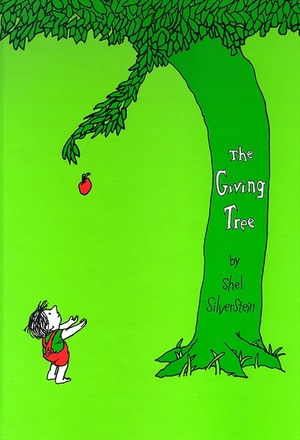
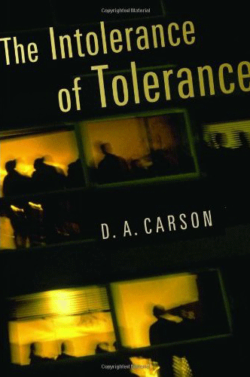

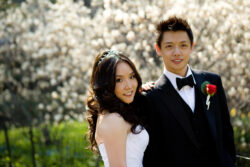


 I like books, gadgets, spicy food, and art. I dislike shopping, hot weather, and the laws of entropy. Although I am a self-proclaimed computer nerd, I still have a love for handbags and makeup... and I am always teetering on high heels. To learn more about me, visit the
I like books, gadgets, spicy food, and art. I dislike shopping, hot weather, and the laws of entropy. Although I am a self-proclaimed computer nerd, I still have a love for handbags and makeup... and I am always teetering on high heels. To learn more about me, visit the 
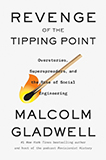
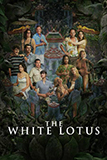
A co-worker gifted me with this book…after reading it, we sat down for lunch in the break room and she said, “Terri, you have nothing left to give.”
I remember my teacher reading it in grade 1 and thinking it was so, so sad (now I would say depressing but I didn’t think in terms like that as a kid). I felt so bad for the poor tree that just kept giving and giving while the boy just kept taking and taking and never giving anything back or thinking of what is best for the tree.
When I was a kid I sobbed whenever I heard the songs Hush Little Baby or On Top of Spaghetti (seriously). I think the two things that upset me the most were waste (even wasted meatballs) and when people don’t appreciate what they have or what people do for them (like the baby that kept making its parents buy it more stuff to break). Thinking back I may have been upset by The Giving Tree because I didn’t think the boy was properly appreciative of the tree and the tree ended up wasting its life on the boy even though he could have found other ways to build a house and a boat.
I used to think it was just me because everybody else always went on and on about how great a story it was. I had to pretend to like the book so that I wouldn’t seem weird, which I think caused me to grow up with more of an animosity towards it than it actually warranted.
I’m surprised at how many people are saying that they didn’t realize this story was depressing until they were adults since it wasn’t until I was an adult that I was able to see anything but the depressing side in this book. I think if anything it is an uplifting book only for parents or someone married or who works with kids – basically anyone who can strongly identify with the tree in that they live their life giving to someone else. But of all people, little kids are the ones least likely to be in a position of constantly giving. As a kid I identified mainly with the book by identifying the boy as being similar to the other children my age begging their parents for toys, complaining that they only got McDonalds for lunch once this week and informing me that they hate their parents because they wont take them to Disneyland.
I am compelled to make comment on this posting if for nothing more than to see my thoughts written in front of me. I think the true success of this story is that people see this as a tragedy, the boy’s child innocence is nurtured without guidance and allowed to be all consuming of the tree’s beautiful desire to care for the boy. It is “depressing” in my opinion to see the neglectful way the boy/man continues to consume the tree and not once considers the tree’s sustainable needs. I would think with this relationship dynamic Silverstien forces the listener to empathize with the tree and be ashamed at the boy/man’s actions, reinforcing the idea of reciprocation in the otherwise wonderful relationship that could be between a boy and a tree such as these characters are. What is truly depressing is that today people are too quick to dismiss a story like this, preventing a beautiful teaching moment with this elegant work of art. I think in this society we have become too hyper sensitive to political correctness and we are losing site of the true purpose of stories like these. I say relax read the story to your kids and then talk with them about it sounds like a conversation worth having many times over years and stages of their growth to adulthood.
Cheers!
The book is terribly depressing. Rather than affirming unconditional love, it presents it as a one-way street that only leads to the diminution and death of the giver. My idea of unconditional love is that it is freely given and naturally returns love to the giver. My mother, terribly depressed late in life, gave this book to my kids when they were young. As we read it I grew more and more uncomfortable, while my Mom nodded and said,w hat a great book, it’s really about parenthood. A few months later, she committed suicide, leaving a note that said in part, “I feel all used up.” I don’t think TGT caused her depression or her suicide, but I think the book echoed the despair and resentment she lived in those last few years. It’s a sad and grim work.
I LOVE The Giving Tree. I find its message of self-sacrificial love to be a powerful and beautiful message. I am so thankful for the men and women in my life that loved me unconditionally and absolutely. This love is like a candle–it may be consumed, but it gives off great light. There is no greater love than to give your life for a friend. And it profits a man nothing to gain the whole world and lose his soul.
I am a big fan of Ryan Gosling but am disheartened by his comment. It’s not about the boy. If the boy is ungrateful and foolish, that is his unfortunate choice. But the world needs people who love fools and ingrates alike. The world is better off for all the mothers, fathers, and friends who are Giving Trees in a selfish world.